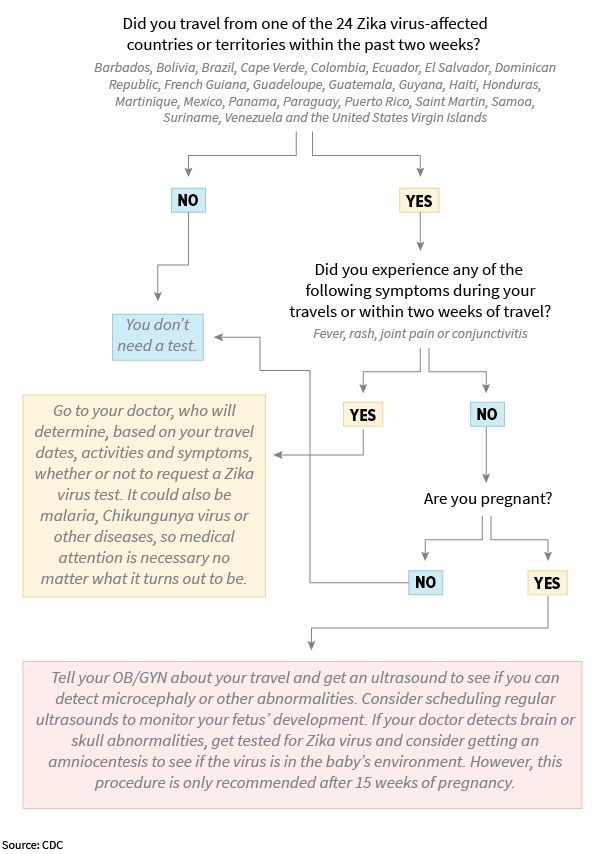The World Health Organization has designated the Zika virus a public health emergency of international concern, which researchers found to cause devastating birth defects. The spread of Zika virus in Brazil has been accompanied by an unprecedented rise in the number of children being born with unusually small heads—identified as microcephaly. In January 2016, the United States Centers for Disease Control and Prevention (CDC) issued travel guidance on affected countries, including the use of enhanced precautions, and guidelines for pregnant women including considering postponing travel.
Here are some Frequently Asked Questions(FAQ) and answers regarding the Zika virus.
What is Zika?
According to the CDC, The Zika virus disease is caused by the Zika virus, which is spread to people primarily through the bite of an infected mosquito (Aedes aegypti and Aedes albopictus). The illness is usually mild with symptoms lasting up to a week, and many people do not have symptoms or will have only mild symptoms. However, Zika virus infection during pregnancy can cause a serious birth defect called microcephaly and other severe brain defects.
What are the symptoms of Zika virus disease?
Zika virus usually causes mild illness. Symptoms most commonly include a slight fever or rash, appearing a few days after a person is bitten by an infected mosquito. Although many will not develop any symptoms at all, others may also suffer from conjunctivitis, muscle and joint pain, and feel tired. The symptoms usually last from 2 to 7 days.
There is no known difference in the symptoms of infected pregnant and non-pregnant women.
Should pregnant women travel to areas where Zika has been confirmed?
No. Pregnant women should not travel to any area with Zika. Travelers who go to places with outbreaks of Zika can be infected with Zika, and Zika infection during pregnancy can cause microcephaly and other severe fetal brain defects.
Can the Zika virus be sexually transmitted?
Yes.
Although experts believe that the vast majority of Zika infections are transmitted by mosquitoes, sexual transmission has been reported in 10 countries, including the United States, France, Germany, Italy and New Zealand. Men infected with Zika have passed it on to both female and male partners. If your male partner has or had Zika, or traveled to an area where Zika is spreading, condom use is advised for at least six months.
Are there any cases of Zika being reported in the United states?
For the latest reported Zika virus in the United States, please visit the cdc.gov website
How is Zika virus disease treated?
The symptoms of Zika virus disease can be treated with common pain and fever medicines, rest and plenty of water. If symptoms worsen, people should seek medical advice.
Where does Zika virus occur?
Local transmission of Zika virus by Aedes mosquitoes has been reported on the continents of Africa, the Americas, Asia and the Pacific.
What can people do to prevent Zika?
The best way to prevent Zika is to protect yourself and your family from mosquito bites:
- Wear long-sleeved shirts and long pants.
- Use Environmental Protection Agency (EPA)-registered insect repellents.
- Sleep under a mosquito bed net if air conditioned or screened rooms are not available or if sleeping outdoors.
- Zika can be spread by men to their sex partners. People whose male sex partners have traveled to or live in an area with Zika can prevent Zika by using condoms condoms correctly every time they have sex or by not having sex.
Should I request a test for Zika from my doctor?

Where can I find more information about Zika?
For more information, you may go to http://www.cdc.gov/zika/
Source
cdc.gov
who.int
